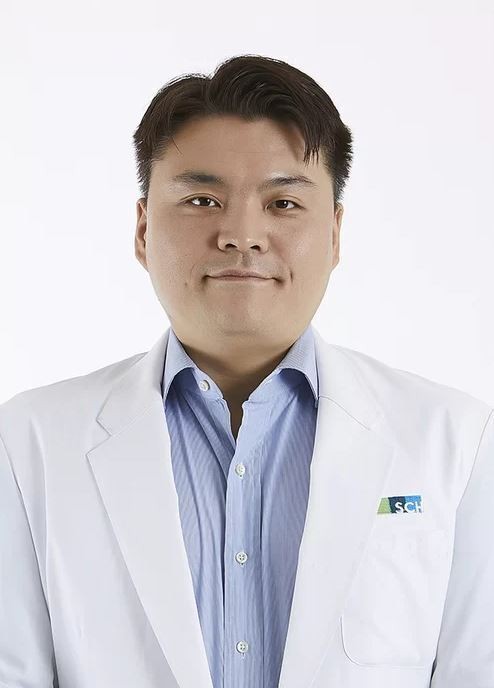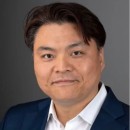Greetings
센터장 인사말
안녕하세요. 여러분.
저는 SCH 재난의학센터의 센터장인 신희준입니다.
저희 SCH 재난의학센터에 오신 여러분을 진심으로 환영합니다.
SCH 재난의학센터는 대한민국의 차세대 재난의학 전문가를 배출하는 것을 우선 목표로하여 설립되었습니다.
전 세계 재난의학 전문가들의 필독 교과서인 Ciottone's Disaster Medicine Book의 저자이자 저의 스승이신 Dr. Gregory Ciottone은 그의 저서에서 재난의학을 응급관리와 위기 상황에서의 의료 처치의 결혼이라고 정의했습니다.
부부가 사랑으로 서로를 인정하고 서로의 필요를 채워주며 협력해야 행복한 가정을 일구듯이 성공적인 재난 관리를 위해서는 응급관리와 위기 상황의 의료 처치도 그러해야 합니다. 결국 이는 재난관리에 관여하는 다양한 주체들이 서로를 인정하고 같이 합력하며 함께 교육 받고 소통하며 임무를 수행해야 성공적인 재난관리를 이루게 된다는 뜻입니다.
이곳은 이 시대의 새로운 도전에 맞서고자 끊임없이 노력하는 차세대 재난의학 전문가들이 성장하는 터전입니다.
SCH 재난의학센터는 Global Excellence를 목표로하여 국내외 최정상의 재난의학 전문가 패컬티들을 분야 별 교육 강사로 초빙 하였습니다.
이를 통해 저희는 대한민국의 재난의학교육에서 개인과 공동체의 가치를 중요시하는 리더쉽있는 재난 의학 전문가를 양성하며 향후 국가적으로 재난으로부터 발생하는 인명 피해를 최소화하는 데 도움을 주는 인재양성을 하는 것을 일차적인 목표로 하고 있습니다.
존 F. 케네디는 1962년 Rice 스테디움에서 10년이내 달 탐사를 위한 아폴로 계획을 발표하며 "우리는 이 일을 하기 위해 선택한 것이 아니라, 이 일이 우리를 힘들게 할 것이라는 이유로 이 일을 해야 한다"는 말을 했고, 아브라함 링컨은 1861년 뉴저지 주 상원 연설에서 "나의 대통령 임기가 끝나면, 난 가장 훌륭한 노력을 기울였다는 것을 알 수 있을 것이다"는 말을 했습니다. 이 두 명의 대통령은 우리에게 어려움에 직면했을 때 그것을 해결하기 위해 노력하는 것의 중요성과 우리가 가지고 있는 역량을 최대한 이용하는 것의 중요성을 교훈으로 주었습니다.
이런 정신을 가지고, 저희 SCH 재난의학센터는 앞으로의 도전에 맞서서 최선을 다하고자 합니다. 우리는 쉬운 일을 선택하기 위해 여기에 있는 것이 아니라, 힘든 일을 위해 여기에 있습니다. 이 힘든 일을 위해 우리는 더욱 열심히 노력할 것입니다.
그리고 우리는 이 역할을 최선을 다해 수행하려는 의지가 있습니다. 사람들이 앞으로의 재난에 대비할 수 있도록 돕는 것은 어렵고도 중요한 일입니다. 그러나 이는 우리가 선택한 바로 그 일입니다. 우리는 이 일을 통해 우리의 의무를 다하고자 합니다.
우리의 목표는 차세대 재난의학 전문가를 양성하는 것입니다. 교육생의 범위에는 의사, 간호사, 구조사 뿐만 아니라 재난 연구자, 재난 관리자, 재난 일차 대응자, 구급대, 보건 의료인, 병의원 의료인, 군인, 경찰, 정책입안 공무원, 정치가, 및 관심있는 시민 등 재난관리에 관심이 있는 모든 직역이 포함됩니다.
재난이라는 어려움에 직면했을 때 우리 모두가 굳건히 서서 그에 맞서 싸울 수 있도록 돕는 것이 우리의 임무입니다.
이 특별한 기회에 용기있는 여러분의 적극적인 지원을 바랍니다.
감사합니다.
Hello everyone,
I am Heejun Shin, the Director of the SCH Disaster Medicine Center. A heartfelt welcome to each and every one of you who has joined us here at the SCH Disaster Medicine Center.
Our center was established with the primary goal of producing the next generation of disaster medicine experts in South Korea.
Dr. Gregory Ciottone, author of Ciottone's Disaster Medicine Book, a seminal text in the field of disaster medicine, and my mentor, defined disaster medicine in his work as the marriage of emergency management and medical care in crisis situations.
Just as a successful marriage requires love, mutual recognition, and cooperation to build a happy home, successful disaster management requires emergency management and medical care in crisis situations to be approached in a similar collaborative manner. Ultimately, this signifies that various stakeholders involved in disaster management must recognize each other, collaborate, educate, communicate, and work together to accomplish successful disaster management.
This place serves as a foundation for the continuous growth of next-generation disaster medicine experts who strive to confront the new challenges of this era tirelessly.
With a focus on Global Excellence, the SCH Disaster Medicine Center has invited top-notch disaster medicine experts from both domestic and international arenas as faculty members in various specialized fields.
Through this, our primary objective is to cultivate leadership-oriented disaster medicine professionals who value both individual and community welfare in disaster medicine education in South Korea, ultimately aiding in minimizing the loss of life resulting from disasters on a national scale.
John F. Kennedy, in his 1962 speech at Rice Stadium, announcing the Apollo program for lunar exploration within a decade, stated, "We choose to go to the moon in this decade and do the other things, not because they are easy, but because they are hard." Similarly, Abraham Lincoln, in his 1861 speech to the New Jersey State Senate, stated, "I trust that if my office has been of any use, it has been due to a faithful execution of my duty." These two presidents imparted the importance of striving to overcome challenges and utilizing our capabilities to the fullest as lessons to us all when faced with adversity.
With this spirit in mind, the SCH Disaster Medicine Center aims to give its best in facing future challenges. We are not here to choose the easy tasks but to tackle the difficult ones. For these challenging tasks, we will strive even harder.
Moreover, we are determined to fulfill this role to the best of our abilities. Helping people prepare for future disasters is a difficult yet crucial task. However, it is the very task we have chosen, and we are committed to fulfilling our duty through it.
Our goal is to train the next generation of disaster medicine experts. The scope of our students includes not only doctors, nurses, and rescuers but also disaster researchers, managers, first responders, paramedics, healthcare professionals in hospitals and clinics, military personnel, police officers, policymakers, politicians, and concerned citizens—all those interested in disaster management.
It is our mission to assist everyone in standing steadfast and facing adversity when confronted with disasters. We sincerely hope for your active support in this special endeavor.
Thank you.

